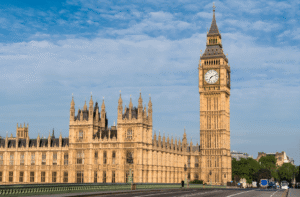Complex Child Visa Application: Navigating Immigration Rules When a Child’s Status Falls Out of Sync with Parents

In the complex and often rigid world of UK immigration, even the most straightforward family situations can present unexpected legal challenges. One such case we recently advised on involved a family where the child’s immigration status became out of step with that of both parents—highlighting how nuances in immigration rules can impact families, particularly children, in significant ways.
Background
The family comprised a father holding a Global Talent visa, a mother who had transitioned to a PBS Dependant visa, and their child. The issue arose when the family discovered, upon re-entry to the UK, that the child’s visa had expired months earlier. This came as a surprise, as the parents’ visas remained valid—raising immediate concerns about the child’s immigration history and future status.
Upon closer review, the root cause was clear: the child had initially been granted a visa at the same time as the father received his Global Talent status, but at that point, the mother was still on a Skilled Worker visa due to expire significantly earlier. Under UK Immigration Rules, when both parents hold different types of leave, a child’s visa is typically issued for the shorter of the two periods. This safeguard is intended to ensure that children are not left in the UK without a legal guardian holding valid leave. Unfortunately, this provision—while protective in theory—had unintended consequences in this case.
The Discovery and Immediate Steps
When the family attempted to re-enter the UK, it became clear the child’s visa had expired. Fortunately, the child was a non-visa national and was admitted to the UK as a visitor—a temporary but crucial reprieve that enabled the family to seek legal advice before the situation escalated.
We were instructed to advise on the next steps, with two key objectives:
- Rectify the child’s immigration status without jeopardizing their immigration history.
- Position the child to obtain Indefinite Leave to Remain (ILR) as soon as possible.
Complicating the matter further, the father was already eligible to apply for ILR and did not wish to delay his application. Therefore, any strategy for the child had to accommodate the father’s change of status from limited leave to settlement.
Strategic Options and Legal Framework
After carefully reviewing the family’s circumstances and relevant immigration rules, we advised on two potential pathways for the child:
Option 1: Application based on a parent present and settled in the UK.
Option 2: Application as a PBS Dependant of a Settled Global Talent Visa Holder
Given the need for a swift resolution and the child’s ineligibility to switch from visitor status within the UK, the family chose Option 2 and travelled to the child’s country of nationality to submit the application. This route provided several advantages: Faster decision-making time and Fewer documentary requirements.
However, the application was not without risks, as the father has already obtained ILR and the gap between the child’s last valid visa and the new application. In our legal representations, we clearly explained the rules, presented a strong justification based on CHI 3.1, and requested urgent consideration due to the child’s precarious position and the father’s frequent business travel.
the Immigration Rules CHI 3.1 state:
“Where the application is for entry clearance or permission to stay, the applicant must be the child of a parent (P) where one of the following applies:
(c) P is settled or has become a British citizen, providing P previously had permission to stay on the same route the applicant is applying for and the applicant had permission as P’s child at that time or was born since P’s last grant of permission and before P settled; “
Although the child’s prior PBS Dependant visa had expired months before, we emphasised in our legal submission that the rule does not require the dependant to currently hold permission—only that they had held it previously when the principal applicant had Global Talent leave. This nuanced but critical interpretation allowed us to argue that the child remained eligible under the Global Talent dependant route.
Our submissions were accepted, and the application was granted within two working days—an excellent outcome. The child now holds valid leave and is on track to obtain ILR simultaneously with the mother, ensuring the family’s legal stability in the UK.
Conclusion
This case highlights how immigration rules—while intended to protect—can inadvertently create vulnerabilities, especially for children in transitory or mixed-status families. It underscores the importance of early legal advice, thorough understanding of immigration policy, and creative legal strategies when navigating complex family migration scenarios.
Our work in this case helped prevent a negative immigration history for the child and ensured the family could continue building their life in the UK without further disruptions.




